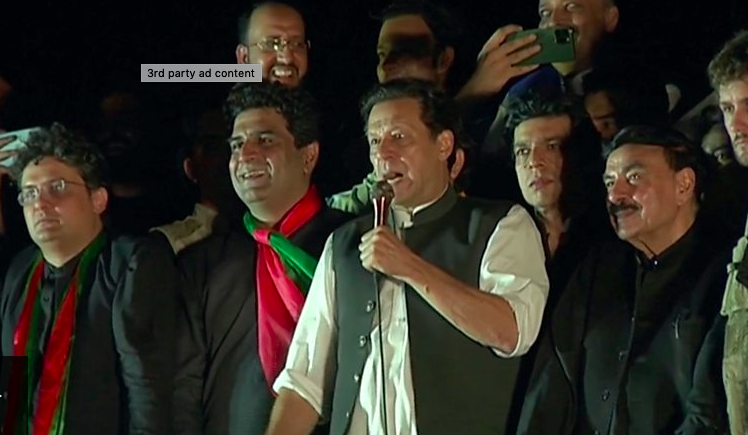Pakistan’s police have charged the country’s former Prime Minister, Imran Khan, under anti-terror laws.
Their investigation comes after he accused the police and judiciary of detaining and torturing a close aide.
Mr Khan’s supporters gathered outside his house vowing to “take over” if he was arrested. However, he has now been granted pre-arrest bail until Thursday.
Since being ousted from power in April, Mr Khan has been a vocal critic of the government and the country’s army.
Police announced the charges after the cricketer-turned-politician accused authorities of torturing his close aide, who is himself being detained under sedition charges.
Officials accused Mr Khan of breaching the country’s anti-terrorism act for allegedly making threats against the state officials.
Hundreds of the former prime minister’s supporters gathered outside his home in Islamabad after news of the investigation broke, vowing to “take over” the capital if police tried to detain him.
Police who were present at the scene said they were not there to arrest the former leader, but to maintain law and order.
Mr Khan’s political allies warned on Monday that arresting the ousted leader would be crossing a “red line”.
“If Imran Khan is arrested… we will take over Islamabad,” tweeted a former minister in Mr Khan’s cabinet, Ali Amin Gandapur.
The case comes at a time of heightened tension between Pakistan’s government and Mr Khan, who was ousted from power in April in a no-confidence vote.
Since then, the former leader has toured the country to deliver a series of fiery speeches calling for fresh elections and fiercely criticising both the government and the army.
Despite his ousting, Imran Khan continues to count on the support of many Pakistani voters.
Last month, his PTI party stunned rivals by taking control of a crucial provincial assembly in Punjab, defeating the PML-N party in what was expected to be an easy win for them.
Many saw July’s by-election victory as a signal of Mr Khan’s continued popularity at the ballot box – and a foretaste of what could happen if the early elections that he is seeking were to be held.
The charismatic politician was elected prime minister in 2018, but fell out with Pakistan’s powerful army towards the end of his tenure. After a series of defections, he lost his majority in parliament.


